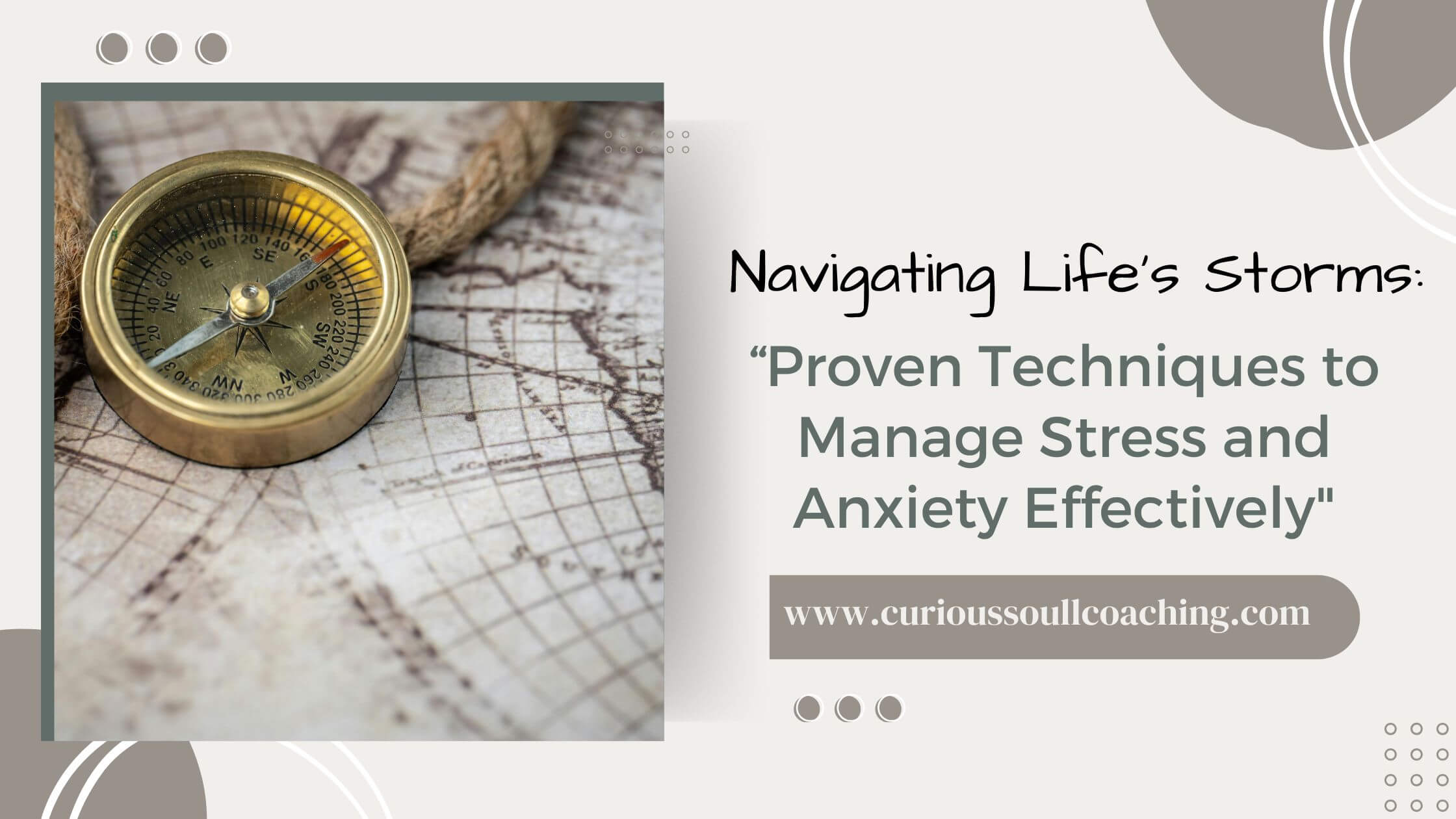
Life, with all its unpredictability, can sometimes feel like an endless series of storms. While some are mere drizzles, others hit us with the force of a hurricane, knocking us off balance and leaving destruction in their wake. The stress and anxiety that accompany these storms can quickly spiral out of control if not effectively managed. For many, these feelings have become a regular part of daily life, dictating their actions, thoughts, and overall well-being. However, by learning how to navigate these turbulent times, it's entirely possible to take control and ultimately achieve the life we aspire to live.
This blog post will serve as your compass, guiding you through the proven techniques that can help manage stress and anxiety effectively. As a mindset and thought coach, my goal is to empower you with actionable strategies that will not only reduce stress but also enhance your emotional, mental, and physical wellness.
Understanding the Anxiety Spiral
Before diving into solutions, it's essential to understand the nature of the anxiety spiral. This spiral can be likened to a vortex, where stress and anxiety feed off each other, dragging you deeper into a cycle that's often hard to break. It begins with a stressful event or thought, triggering feelings of worry. These feelings amplify, resulting in physical symptoms like a racing heart or shortness of breath, which can, in turn, exacerbate anxious thoughts. Left unchecked, this cycle can become an all-consuming force, affecting every aspect of your life.
The anxiety spiral is powerful, but it's essential to recognize that it's also predictable. By understanding its mechanics, you can anticipate the onset of anxiety and deploy strategies to manage your response effectively.
Proven Techniques to Manage Stress and Anxiety
- Mindfulness and Meditation
In recent years, mindfulness has moved beyond being just a buzzword to becoming a cornerstone of effective mental health management. Practicing mindfulness involves focusing on the present moment without judgment. This practice can be as simple as taking a few minutes every day to focus on your breath or as involved as participating in guided meditation sessions.
By grounding yourself in the present, you reduce the power of future-focused anxiety. Studies show that regular mindfulness practice can decrease symptoms of anxiety and improve overall mood.
- Cognitive Behavioral Techniques (CBT)
Cognitive Behavioral Techniques are widely used tools that help individuals break the negative thought patterns contributing to the anxiety spiral. CBT involves identifying negative thought patterns and actively working to challenge and alter them. This might mean re-framing a situation to see it in a more positive light or developing problem-solving skills that address stressors head-on.
- Physical Activity
Exercise is a powerful stress reliever. Physical activities like walking, jogging, yoga, or even dancing can effectively reduce stress hormones such as cortisol, while increasing the production of endorphins—the body's natural mood boosters. Regular physical activity also improves sleep, which is commonly disrupted by stress and anxiety.
- Breathing Exercises
Anxiety often tricks the body into entering a state of fight or flight. Deep, slow breathing helps counteract this response by stimulating the parasympathetic nervous system, which promotes relaxation and calm. Techniques such as diaphragmatic breathing or the 4-7-8 method can be practiced anywhere and are highly effective in curbing acute anxiety symptoms.
- Healthy Lifestyle Choices
Nutrition plays a critical role in mental health. Consuming a balanced diet rich in fruits, vegetables, lean proteins, and whole grains can help stabilize mood and energy levels. Reducing caffeine and sugar intake can also prevent the triggering of anxiety symptoms. Ensuring that you get enough sleep and practice good sleep hygiene is equally vital in managing stress effectively.
- Building a Support System
Humans are inherently social creatures, and connecting with others is a powerful way to combat stress. Whether it's talking to a friend, joining a support group, or writing in a journal, expressing your thoughts and emotions can provide relief. Surrounding yourself with supportive individuals who understand and can offer guidance is invaluable.
Navigating life's storms is a journey that requires equipping yourself with the right tools and strategies. By understanding the anxiety spiral and implementing proven techniques like mindfulness, CBT, physical activity, and lifestyle changes, you can regain control and steer your life in a positive direction. Remember, while stress and anxiety are natural responses to life's challenges, they don't have to dictate your life story.
As you embark on this path to wellness, I invite you to take the first step towards a more balanced life.
Schedule a free wellness consultation today and discover how customized coaching can help you develop the skills needed to manage stress and achieve the life you desire. Reach out, and let's work together to transform storms into opportunities for growth and resilience.
To book your complimentary consult, simply click HERE, and start your wellness journey today.
Remember, you are the captain of your ship, and your life’s most breathtaking journey is just beginning.
Be Grateful. Have Faith. Live Your Best Life.
Sonja










0 Comments